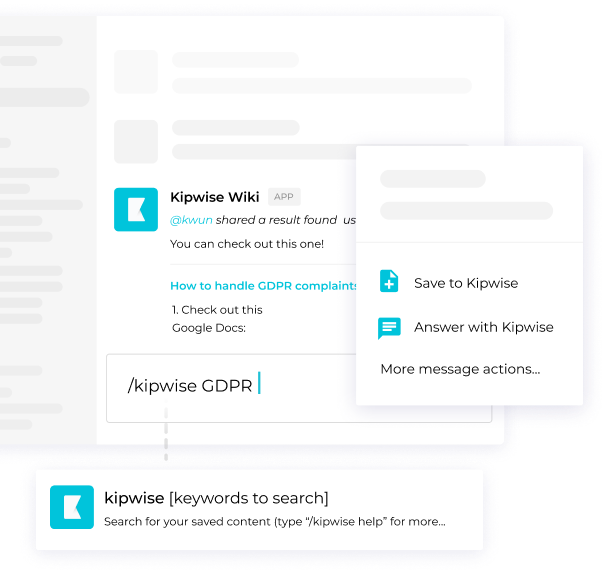What is team cohesiveness?
Knowing how to work in a team is an increasingly demanded skill in different areas of the job market. The desire to improve teamwork includes the idea of learning, sharing values and experiences and expanding everyone's knowledge in a collaborative way.
There are some tips to facilitate the work of this group. We've put together some tips for you who want to develop this essential skill for the job market.
Why is team cohesiveness important?
Learning to work in a team is an essential skill that you can use both in the job market and during your studies. And above all in the day-to-day business, it is very important to know how to create relationships of integration, union, and collaboration between employees in order to develop good work and the functioning of the organization as a whole.
Ideally, teams learn to share values and experiences and expand the knowledge of all members together. A good professional must understand how teams develop and work and apply what they learn in their daily lives.
This is a hot skill in an increasingly demanding job market. Companies are looking for professionals who are flexible, adaptable, and able to learn from other employees. Showing interest, respecting differences, listening, and building trust are among the most important skills for anyone who wants to perform well in work teams.
Signs of a cohesive team and 10 tips on how to build a cohesive team
1. Be open to new ideas
Above all, working as a team means listening openly, understanding, and accepting new ideas. This is a very important step to obtain good results and, in addition, to find new and possible ways to learn. When someone understands that their ideas are also welcome, that person starts to more easily accept what is suggested by others and feeds the cycle.
2. Respect the difference and get to know your peers
It is important to respect differences to improve team cohesion. And here we talk about all of them, physical differences, origin, class, race, sexual orientation, careers, philosophies, beliefs. A diverse team is a great ground for creativity, because when we bring different points of view to the dialogue and think together on the same topic, it is quite possible that new solutions will be presented.
So get to know your peers, understand how they think and work on specific topics, and let them learn together and experience other opportunities.
3. Be participatory
A team only works well when all members feel they are working fairly and equitably. So, participate, get involved and be part of the activities. Actively showing yourself is a great example to encourage other colleagues around you to show themselves and so the team develops together. Avoid disinterest and don't leave your task to others.
4. Share ideas
It's no use being part of a good team if you always work individually. Learn to share ideas and knowledge and contribute to the growth of others as they contribute to yours.
5. Show interest
Showing interest also means always standing up for other employees. Meet deadlines, be willing to learn and test new suggestions. Listening to others is also a fundamental skill that bears good fruit for the development of groups and teams in general.
6. Provide constructive feedback
Building and maintaining an environment that encourages constructive feedback is a good way to go. Knowing how to give good reviews and present your point of view well without insulting or belittling the ideas of other members. Good criticism occurs in the sphere of ideas, not in the personal sphere.
When the team is open and confident in receiving feedback, the growth and development of a project is often much faster and more efficient. Allow each member to review their work if necessary.
7. Create autonomy to perform tasks
Even knowing that teamwork is largely collective, it is important to understand that some works are also done individually. Each member usually assumes a different role in the team and, when integrated, it is essential that each employee also develops autonomy to carry out their tasks and work independently. Don't expect to be constantly informed about what to do and to be able to take the initiative even as a team.
8. Have a systemic view
Taking a systemic view means seeing the whole beyond the individual parts. The objective here is to develop the ability to see improvements and common solutions, to think about work and problem solving in a more structured way.
The systemic view takes you beyond the activities themselves and allows each contributor to view all parts of the project.
9. Respect individuality
It is very important to respect the individuality of each employee and be patient with collective processes. Reconciling opinions may not be an easy task, so share your views, but listen and respect the point of view of those who work with you. Our own ideas are not always correct.
10. Build trust and confidence
Trust is one of the essential qualities for the good functioning of a team. And it is worth remembering that it must be reciprocal. So don't just learn to trust each other's work, make an effort to make them trust yours too. A tip to demonstrate trust is to demonstrate vulnerability, that is, not be ashamed to reveal your mistakes or doubts about the project being developed.
Teamwork typically accompanies most professionals from beginning to end of their career. Whether in large or small teams, in large or medium-sized companies, teamwork and collective thinking are a skill that is in constant demand in the job market.
Therefore, learning to be a good team worker can be a very important trait to grow and advance in your career. Dealing with each other can be a delicate process that requires patience, care and attention. The main thing is to always be available and calm for dialogue.
Kipwise helps your team stay cohesive
A cohesive team knows what everyone is doing, what everyone's role is and works towards the same goal. Anyone who already uses our tool knows that even the follow-up history is recorded. In other words, anyone can continue and guarantee the service to the journalist. The data is used to ensure the work progresses. Even if someone else has to take the lead, for whatever reason. This way, nothing is guaranteed to be lost.
With the reports, which can contain all the data recorded in the system, it is possible to understand if there are gaps and how to fill them, and also to understand where productivity is lower, quality is higher, that is, it works like this, which the customer knows. the results obtained, but also for the agency to understand if something needs to be changed. Today Kipwise (https://kipwise.com) works almost like a manager who organizes the work and points out necessary improvements. Everything so that the work has two fundamental characteristics: quality and satisfaction.




